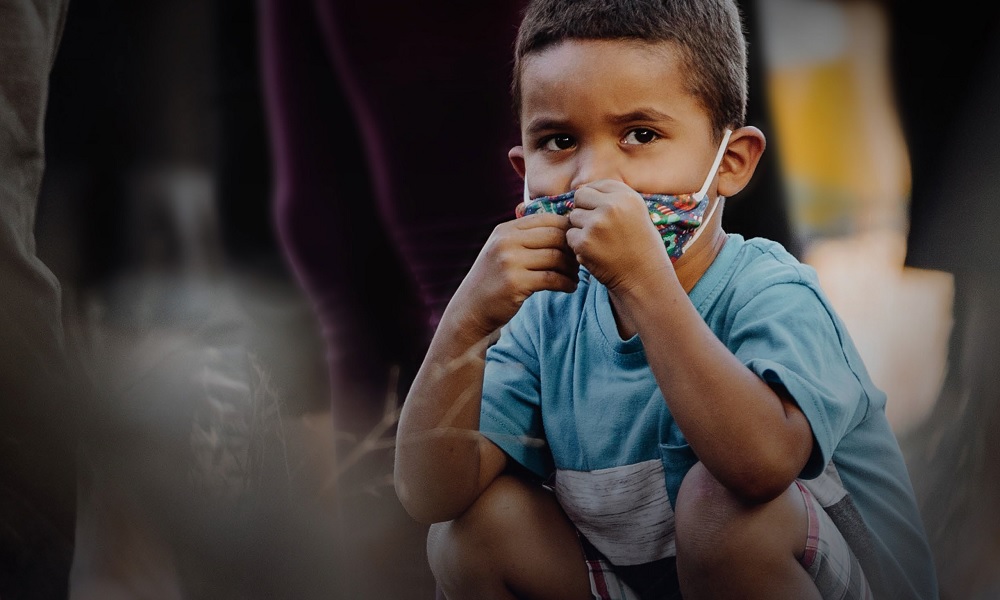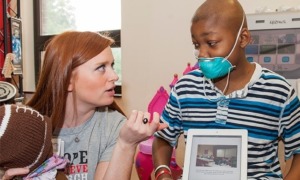Author(s): COVID Collaborative and Social Policy Analytics
Published: December 2021
Report Intro/Brief:
“Among the more than 760,000 deaths from COVID-19 in the United States are parents, custodial grandparents, or other caregivers on whom children had relied for financial, emotional, and developmental support. Many of these children already faced significant social and economic adversity, and these devastating losses can impact their development and success for the rest of their lives. In a report written with the COVID Collaborative, we estimate the number of children who lost a parent or other caregiver to COVID-19 and provide concrete recommendations for urgent actions to protect these vulnerable children and their remaining caregivers.
Key Findings
The magnitude of the total loss of life from COVID-19 outpaces deaths in every U.S. war, and the impact of that loss on children in less than two years is profound. The numbers present a challenge to the nation.
- Total Loss: 167,082 children under 18—more than one out of every 450—lost a parent or other in-home caregiver to COVID-19.
- Loss of A Parent, A Grandparent Caregiver, or Their Only Caregiver: More than 72,000 children lost a parent to COVID-19 and over 67,000 lost a grandparent caregiver in the home, while more than 13,000 children lost their only in-home caregiver.
- Loss by Age: Seventy percent of caregiver loss (117,948) affected those aged 13 and younger. Fifty percent of caregiver loss (83,798) was among elementary and middle-school age children (5-13 years old) and 20 percent (34,150) was among those from birth through 4 years old. More than 29 percent (49,134) of caregiver loss affected youth who were high school age (14-17 years old).
- Loss by Race & Ethnicity: Non-White children lost caregiving adults at higher rates than their White peers. American Indian and Alaska Native and Native Hawaiian and Pacific Islander children lost caregivers at rates of nearly 4 times the rate of White children; Black and Hispanic children at nearly 2.5 times the rate of White children; and Asian children at 1.6 times that of White children.
- Loss is Concentrated, but Also Found in Every State in the Country: Five states—California, Florida, Georgia, New York, and Texas—accounted for half (50 percent) of total caregiver loss from COVID-19. Arizona, Mississippi, New Mexico, and Texas had the highest rates of caregiver loss, while Maine, New Hampshire, Vermont, and Wisconsin had the lowest rates.
- Loss by Geography, Race, and Ethnicity: The District of Columbia had the widest disparities in caregiver loss, where Black and Hispanic children’s rates of caregiver loss were 11 and 18 times the rates of loss for White children, respectively. The rates of caregiver loss for American Indian and Alaska Native children were more than 10 times those of White children in Mississippi, New Mexico, North Dakota, South Dakota, and Utah.
Recommendations
- Undertake a coordinated strategy to comprehensively identify children who have lost a parent or caretaking guardian to COVID-19 through schools, community-based organizations, primary care settings, and the use of municipal administrative records.
- Create a COVID-19 Bereaved Children’s Fund, similar to those established for the families of September 11, 2001 and HIV/AIDS orphans.
School and Community-Based Interventions
- Expand the grief-competence of schools, community-based organizations, faith-based institutions, and other community leaders.
- Expand access to high-quality early childhood programming for COVID-bereaved children, with categorical eligibility for publicly funded programming like Head Start and Early Head Start and the waiving of parent-activity requirements and co-payments.
- Develop a registry of available grief services to inform referral efforts and make those widely available through communities, states, and national platforms.
- Strengthen social service systems providing critical resources to COVID-bereaved children and their families, which will have impacts beyond the immediate crisis.
Clinical Interventions
- Expand access to mental health care in schools through additional training plus partnerships with external mental health care providers.
- Expand access to outpatient mental health care through increased co-location of services, integrated behavioral health care, and telehealth access.
- Reducing cost-sharing responsibilities or facilitating pro bono provision of outpatient mental health care associated with COVID-19-based parental loss.
Economic Interventions
- Congress should make permanent the Child Tax Credit as revised by the American Rescue Plan, which will benefit families experiencing loss.
- The White House and Congress should provide categorical eligibility for COVID-19 bereaved children for a range of means-tested economic supports, including TANF, SNAP, Medicaid, and the recently amended Child Tax Credit.
- State and local governments should provide pre-emptive outreach, case management, and eligibility screenings for families with a COVID-19 decedent to facilitate enrollment in protective supports and services.
- The federal government should improve outreach and accessibility for FEMA’s Funeral Reimbursement Assistance program, Social Security Death, and Survivor’s Benefits.”
>>> CLICK HERE to see all of Youth Today’s REPORT LIBRARY






























